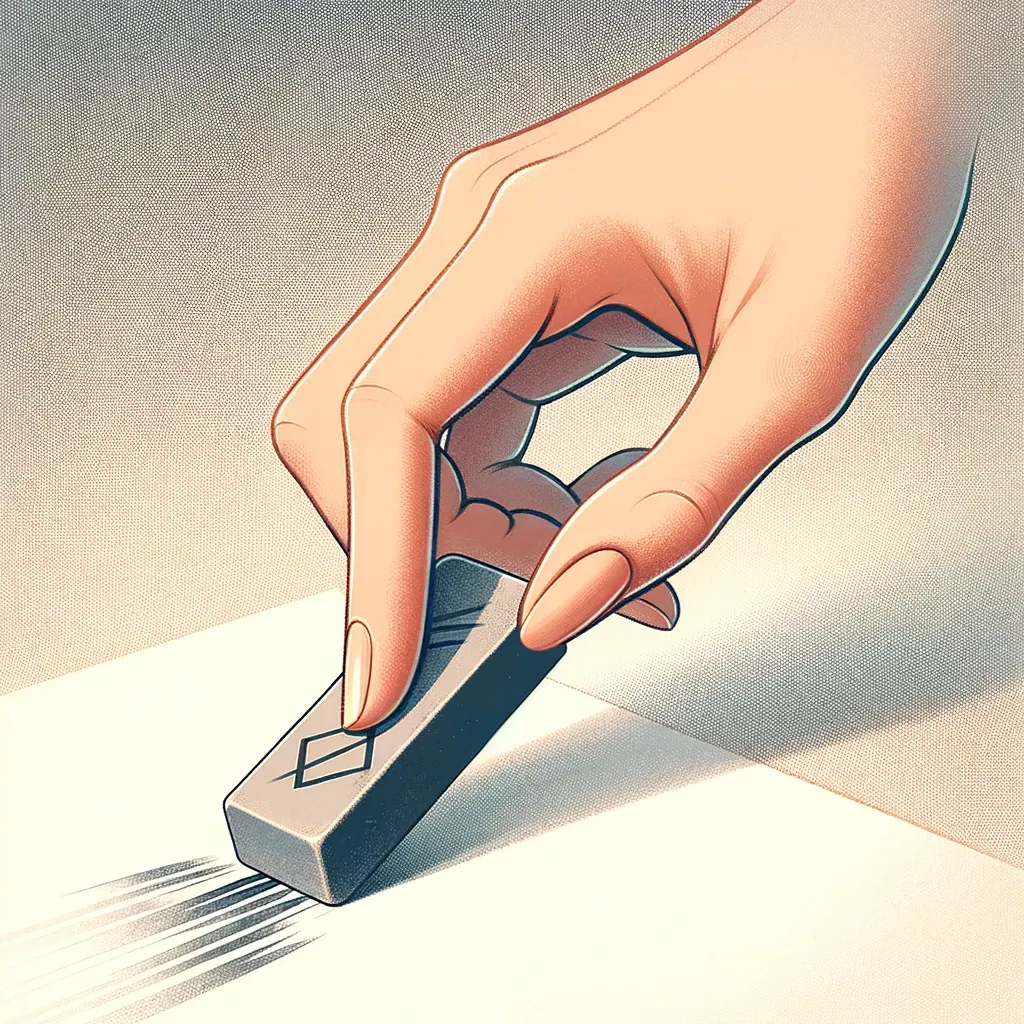Elevating Your Writing - The Art of Subtraction
The Power of Omission in Writing

Less is often more
Less is often more. This adage rings especially true in the art of writing, where the power of a message is not just in the words used, but also in those omitted. The strategic removal of certain words can transform writing from mundane to memorable, from verbose to vivid.
Omitting words not only streamlines your prose but also amplifies its impact, making your content more powerful and believable.
Writing, at its core, is an act of expression and persuasion.
Whether it's a novel, an article, or a business report, the goal is to convey ideas clearly and convincingly. However, in the quest to express ourselves, we often clutter our sentences with unnecessary words.
These superfluous words can dilute our message, making it less impactful and less credible. This is where the art of omission comes into play, serving as a scalpel to trim the fat and expose the sinew of our thoughts.
The concept of omitting words for more effective communication is not new. It's a principle that has been advocated by great writers and orators throughout history.
The famous writer Mark Twain once advised,
"When you catch an adjective, kill it."

His witty remark underscores the importance of being concise. Adjectives, adverbs, and filler words often add little to the meaning of a sentence. By removing them, we make our writing more direct and forceful.
Consider the psychology behind more concise writing. When a reader encounters a piece of writing, they subconsciously seek the path of least resistance. Dense, wordy sentences require more cognitive effort to parse, and as a result, the reader may disengage.
By contrast, concise writing is easier to process, making the reader more likely to absorb and believe the message. Moreover, in an age of information overload, readers appreciate content that respects their time and attention.
Furthermore, omitting unnecessary words can enhance the believability of your writing. Overuse of intensifiers like "very" or "really" can come across as hyperbolic, eroding the reader's trust. Similarly, hedging phrases like "I think" or "it seems" can make the writer appear unsure, weakening their authority on the subject.
By stripping these elements away, you present your ideas with more conviction, thereby increasing their persuasiveness.
Another aspect to consider is the rhythm and flow of your writing. Just like in music, silence—or in this case, the absence of words—can be as powerful as the sound!
Rhythmic Variation

Strategic pauses created by shorter sentences or paragraphs give readers a moment to reflect and absorb the information. This rhythmic variation can make your writing more engaging and impactful.
In summary, omitting words is not about sacrificing detail or depth; it's about distilling your message to its purest form. It's about choosing your words with precision and purpose.
As you write, ask yourself- Does this word add value? Is it essential to my message? If not, it might be more powerful left unsaid. By embracing the art of omission, you can elevate your writing, making it not only more powerful and engaging but also more credible and persuasive.
In the quest to enhance the effectiveness of our writing, we often overlook a simple yet powerful strategy- subtraction.
The art of writing isn't just about what you add, but also what you remove. By eliminating certain words and phrases, we can transform our prose, making it more authoritative, impactful, and engaging.
Here are7 + 1 common culprits that, when removed, can significantly sharpen your writing!

THAT
Example-
Before- "She believes that we can achieve our goals."
After- "She believes we can achieve our goals."
Why Remove- "That" is often redundant, cluttering your sentence without adding meaning.
BASICALLY
Example-
Before- "Basically, we’re suggesting a new approach."
After- "We’re suggesting a new approach."
Why Remove- "Basically" undercuts your point, making it seem as if you're simplifying a complex issue.
LITERALLY
Example-
Before- "I was literally over the moon with excitement."
After- "I was over the moon with excitement."
Why Remove- Misused for exaggeration, "literally" often confuses rather than clarifies.
I THINK
Example-
Before- "I think this is the best solution to our problem."
After- "This is the best solution to our problem."
Why Remove- "I think" implies uncertainty, undermining the confidence in your statements.
HONESTLY
Example-
Before- "Honestly, I believe this is a great idea."
After- "I believe this is a great idea."
Why Remove- It suggests that your other statements might not be honest, casting doubt on your integrity.
JUST
Example-
Before- "I just want to add a small point."
After- "I want to add a small point."
Why Remove- "Just" can diminish the importance of your statement.
REALLY
Example-
Before- "This is really important."
After- "This is crucial."
Why Remove- "Really" is a weak intensifier and often sounds unprofessional.
VERY
Example-
Before- "He was very angry."
After- "He was furious."
Why Remove- "Very" is an overused modifier that can usually be replaced with a stronger, more descriptive word.


